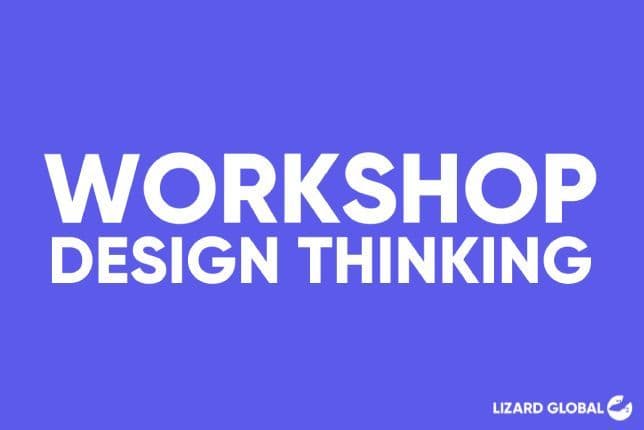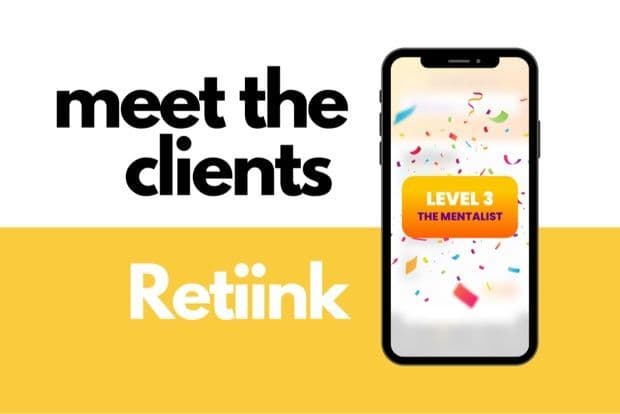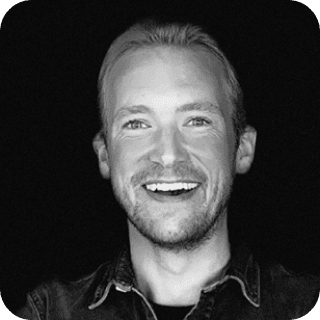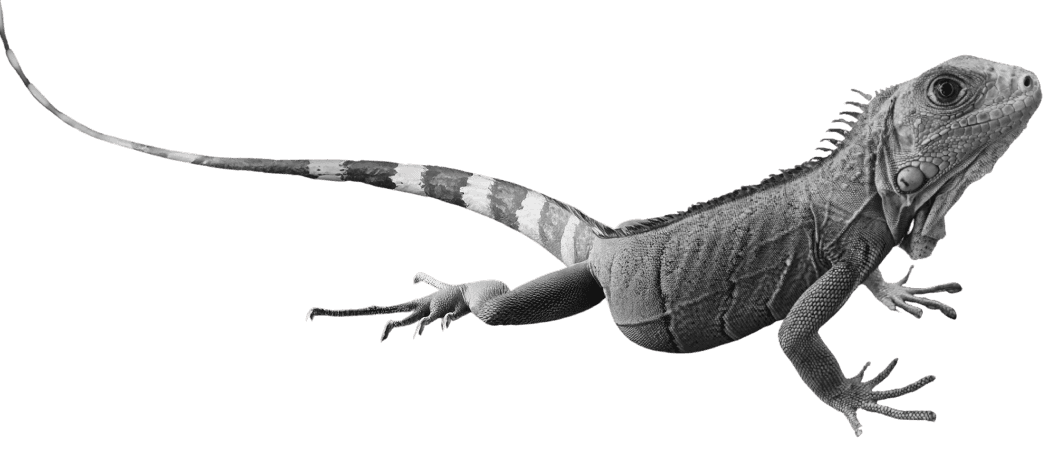digital transformation
process automation
+ 6 more ...
Digital Transformations in Healthcare
01 Apr 2021
by Lotte, Digital Content Specialist
01 Apr 2021
by Lotte, Digital Content Specialist
digital transformation
process automation
digitization
healthcare
ehealth
electronic healthcare
digital recovery
support community
Digital Transformations in Healthcare
Table of contents

The healthcare industry can benefit greatly from a digital transformation. Together with our clients, we create digital solutions that revolutionize the medical field and make healthcare future-proof.
Healthcare is an undeniably essential industry in every corner of the world, keeping us alive and well with the tools and treatments it has to offer. Like any other industry, the medical sector can greatly benefit from modern technologies, such as high-tech machinery like MRI scanners and remote-controlled robot surgeons, digital and centralized medical portals, and self-care resources.
The field of medical self-care and recovery is becoming increasingly advanced with the emergence of cutting-edge applications, also known as e-health or digital healthcare. Think of in-app pedo-meters, sleep trackers, brain training puzzles, patient portals, or mental health applications like meditation guides and journaling apps. All in all, the medical field is quickly becoming a leading industry in rapid digitization. At Lizard Global, we believe that all industries can benefit from a digital transformation, including the healthcare industry. In this blog, you can read all about the transformation of the healthcare industry, and some of our successful projects in the sector.
The digital transformation of healthcare
Although the healthcare industry has been around for ages, it has always been one to be on top of technical and technological advancements. New tools and technologies for providing better healthcare have always been welcomed with open arms by the industry. After all, when it comes to the wellbeing of our bodies and minds, we want to have the best of the best. While the medical field’s main goals are to constantly streamline and optimize healthcare systems and reduce human error by implementing technologies that can do the same work but in a more precise manner, the healthcare and pharmaceutical industry often falls behind when it comes to the implementation and adoption of new digital strategies.
Many computer systems in the medical industry are still running on old operating systems and platforms, mainly because they proved to be efficient in the past, and modernizing an established system requires every single member of staff and workflows to change along. Adapting to new systems and technologies requires careful consideration, among which is the security of sensitive patient information exchanges and storage. And while the tailored and technical implementation of new technologies is usually done by software experts, the process of adopting these changes among both healthcare providers and consumers is often heavily underestimated.
A digital transformation doesn’t happen overnight but can have lasting positive impacts. Every aspect that can benefit from this transformation has to be carefully analyzed in order to develop a solution that’s perfectly aligned with the needs of the business. That’s where an experienced digital partner like Lizard Global comes into play, to securely and professionally help these businesses in their journey towards digital transformation.
Because the healthcare industry generally involves quite a lot of human interaction, a digital shift needs to be done carefully, following a phased approach to make sure everyone is on board with the implemented changes. When creating a digital solution for your healthcare business, you need to create a deep understanding of your end-users to make sure your product is user-friendly and easy to interact with.
Not sure how to start such a project? Then our digital workshops might be useful for you and your team. In these workshops, we guide you through the process of creating a digital solution for your business, from start to finish.
This includes thorough audience- and market research, collaborative brainstorm and ideation sessions, and a concrete phased plan-of-action and implementation of your solution into your existing business processes. Get in touch with our experts to learn more about our workshops!
Examples of digital healthcare solutions
Before we dive into the healthcare projects we’ve developed at Lizard Global, let’s have a look at some examples of digital solutions that have changed the healthcare industry for the better. Think of, for example, Artificial Intelligence and machine learning technologies, that are used to develop and implement smart medical devices that can take over a significant part of a surgery, and therefore allows surgeons to focus on the most important issues. Since the emergence of smartphones and applications, we’ve seen a massive surge in the number of applications that allow patients to have control over their own diagnosis and recovery. EHealth apps have become increasingly popular, proving their efficiency in, for example, digital communication between patients and doctors. These health applications have made it easier than ever before to manage healthcare data, monitor patients, manage electronic medical records, and schedule patient visits.
Mobile applications
One of the most obvious digital solutions in healthcare are the countless eHealth apps consumers use on a daily basis. Mobile apps have evolved as the most efficient tool for maximizing patient engagement. Contacting doctors and medical care institutions in an emergency is now much easier thanks to mobile health applications. In recent years, smartphone applications have played an important role in the prevention and management of Type 2 diabetes. Without a doubt, the exponential expansion of mobile health applications and their use continues to alter modern healthcare.
The great majority of smartphone owners now use at least one eHealth app. Aside from the exponential development in the number of health applications, their reach and ubiquity have become broader than ever before. Every iPhone has a built-in pedometer and allows users to also track their sleeping patterns and heartbeat regularity. Next to that, app stores are bursting out their seams with different types of mental self-help applications, meditation guides, sleeping soundscapes, and much more.
IoT in Healthcare
The Internet of Things is no longer simply used as a collection of interconnected devices that make our homes smarter and more comfortable. It goes way beyond our living rooms, and it’s rapidly taking over the healthcare sector with the potential to completely revolutionize the industry.
Wearable health and fitness trackers, which provide users with relevant health information and insights through linked smartphone applications, were the first interconnected healthcare devices. However, the trend continued by converting standard health equipment into linked devices, assisting them in transmitting real-time patient data to physicians and caregivers. The IoT movement to connect all health devices and equipment paves the way for an interconnected collection of various medical health apps.
Blockchain technology
One of the most pressing problems for global healthcare institutions is the preservation and protection of patient data, as well as the prevention of potential risks and vulnerabilities related to data security. This is especially true in the case of linked healthcare devices, which are rapidly posing a variety of security dangers. While providing optimal data security, linked healthcare devices and applications must also adhere to HIPAA (Health Insurance Portability and Accountability Act of 1996) regulations. As the most secure decentralized database technology, Blockchain-based solutions can assist healthcare organizations in tackling both concerns.
When it comes to data security, there is no better or more suited technology than Blockchain. The blockchain is a decentralized database that allows all stakeholders within an organization to have open access to information while managing access with strong encryption and preventing data theft or manipulation. When Blockchain is used to secure healthcare data for a medical organization, the patient's data is safe at all times.
Because of Blockchain, eHealth applications can provide a considerably better user experience by eliminating so-called defensive security processes, such as a thorough registration process and passwords. Next to that, Blockchain-based processing can reduce a lot of paperwork by digitizing and storing documents in mobile apps. Blockchain databases can provide unrestricted access to individualized medical records and datasets while prohibiting all forms of manipulation.
Telemedicine
So-called ‘telemedicine’ applications have changed the way doctors and patients connect and communicate. The geographical barrier between the doctor and the patient is no longer in the way of timely care and treatment, thanks to telemedicine apps. Telemedicine applications allow patients to directly communicate with doctors and receive advice and medication prescriptions in real-time through their application. Not only does this prove a secure solution for ensuring continuous healthcare in times of a global pandemic, but it also greatly reduces CO2 emissions by reducing traffic back and forth to healthcare institutions.
Projects
Lizard Global is an expert in the field of digital transformations and the development of digital solutions to optimize business processes and revolutionize a wide variety of industries. We do this together with our clients, who come to us with an innovative idea that has the potential to reshape their field of expertise. We help our clients conceptualize this idea into a concrete plan and digital roadmap, a user-friendly design, and technical development to turn their solution into a functioning product. Let’s have a look at a few of our successful partnerships with clients in the healthcare industry.
Retiink
Together with Nicole, the founder and authors of Holding on To Hope, we conceptualized, designed and developed Retiink: a revolutionary mobile application for Android and iOS, supporting users in their recovery after a traumatic brain injury. With features such as task planners, an extensive in-app knowledge library, a supportive community and engaging and interactive brain training challenges, users can build their way up to recover their brain’s strength and capabilities.
Main features:
- Gamified brain training challenges
- In-app knowledge library
- Task planner
- Support community
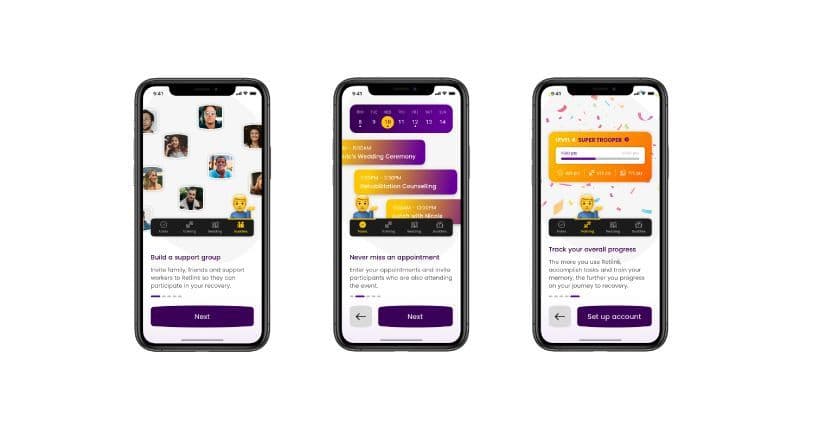
FeetClinic
FeetClinic is a startup concept that functions as an intermediate platform between patients, pedologists, feet products suppliers, health agencies, and insurance companies. Together with FeetClinic, Lizard Global developed a digital platform of the same name, with which users are guided in assessing and finding information about medical conditions. This digital solution makes FeetClinic an authority in the digital pedology field and an official health label in feet healthcare.
Main features:
- Health Issue Prevention
- Extensive Knowledge Base
- Reward Platform
- Easier intake Process
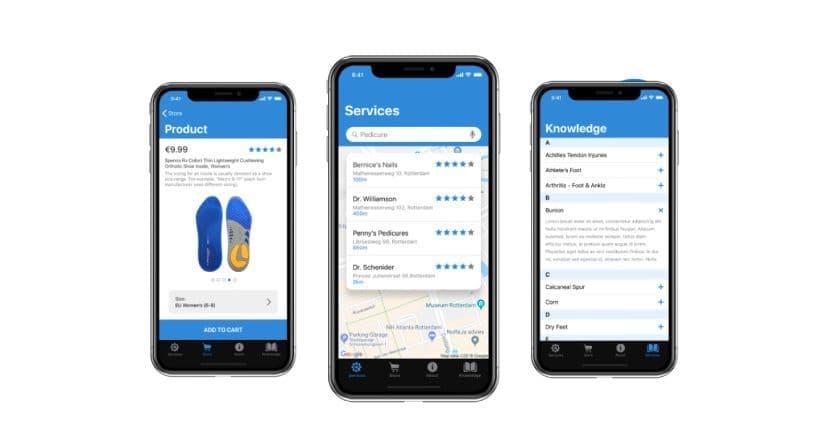
Project: Gyrafit
Gyrafit is a dynamic, adjustable orthotic that uses a revolutionary heel system and a unique flexible arch support shell to modify the way the foot interacts with the ground, providing dynamic support throughout the stepping cycle. Correct foot alignment improves posture and alleviates many unexplained problems such as knee, hip, and back discomfort. Gyrafit needed the right tools to help doctors and orthopedists integrate foot care into a mobile app as quickly as possible.
Lizard Global created the design that Gyrafit can use to raise funds to develop the app. The app will provide the right tool for Gyrafit to help patients receive and reuse low-cost custom orthotics, as well as teach them how to properly adjust them.
Main features:
- Personalized healthcare
- Centralized dashboard
- Photo-captured measurements
- Direct communication with healthcare professionals
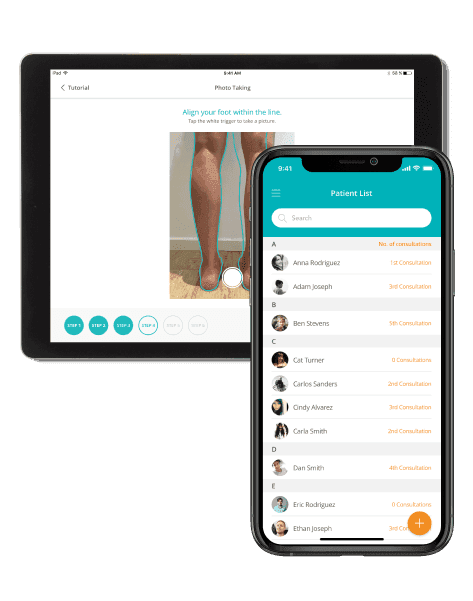
Need a hand?
Are you looking for a digital partner for the development of your web app or mobile application, and are you ready to take the step towards the digital transformation of your own business and industry? We can help! Get in touch with our experts by filling out the contact form on our website, or drop us a line on WhatsApp or our social media channels.
Curious about our other verticals? Check out our portfolio for an insight into all the industries we’re supporting with digital solutions. Or take a look at our previous blogs on the digital transformation in:
Maritime
Healthcare
FinTech
Human Resources
Education
Community
Transport & logistics
Industry 4.0
Real Estate
Sports
Government
Tourism & travel

The healthcare industry can benefit greatly from a digital transformation. Together with our clients, we create digital solutions that revolutionize the medical field and make healthcare future-proof.
Healthcare is an undeniably essential industry in every corner of the world, keeping us alive and well with the tools and treatments it has to offer. Like any other industry, the medical sector can greatly benefit from modern technologies, such as high-tech machinery like MRI scanners and remote-controlled robot surgeons, digital and centralized medical portals, and self-care resources.
The field of medical self-care and recovery is becoming increasingly advanced with the emergence of cutting-edge applications, also known as e-health or digital healthcare. Think of in-app pedo-meters, sleep trackers, brain training puzzles, patient portals, or mental health applications like meditation guides and journaling apps. All in all, the medical field is quickly becoming a leading industry in rapid digitization. At Lizard Global, we believe that all industries can benefit from a digital transformation, including the healthcare industry. In this blog, you can read all about the transformation of the healthcare industry, and some of our successful projects in the sector.
The digital transformation of healthcare
Although the healthcare industry has been around for ages, it has always been one to be on top of technical and technological advancements. New tools and technologies for providing better healthcare have always been welcomed with open arms by the industry. After all, when it comes to the wellbeing of our bodies and minds, we want to have the best of the best. While the medical field’s main goals are to constantly streamline and optimize healthcare systems and reduce human error by implementing technologies that can do the same work but in a more precise manner, the healthcare and pharmaceutical industry often falls behind when it comes to the implementation and adoption of new digital strategies.
Many computer systems in the medical industry are still running on old operating systems and platforms, mainly because they proved to be efficient in the past, and modernizing an established system requires every single member of staff and workflows to change along. Adapting to new systems and technologies requires careful consideration, among which is the security of sensitive patient information exchanges and storage. And while the tailored and technical implementation of new technologies is usually done by software experts, the process of adopting these changes among both healthcare providers and consumers is often heavily underestimated.
A digital transformation doesn’t happen overnight but can have lasting positive impacts. Every aspect that can benefit from this transformation has to be carefully analyzed in order to develop a solution that’s perfectly aligned with the needs of the business. That’s where an experienced digital partner like Lizard Global comes into play, to securely and professionally help these businesses in their journey towards digital transformation.
Because the healthcare industry generally involves quite a lot of human interaction, a digital shift needs to be done carefully, following a phased approach to make sure everyone is on board with the implemented changes. When creating a digital solution for your healthcare business, you need to create a deep understanding of your end-users to make sure your product is user-friendly and easy to interact with.
Not sure how to start such a project? Then our digital workshops might be useful for you and your team. In these workshops, we guide you through the process of creating a digital solution for your business, from start to finish.
This includes thorough audience- and market research, collaborative brainstorm and ideation sessions, and a concrete phased plan-of-action and implementation of your solution into your existing business processes. Get in touch with our experts to learn more about our workshops!
Examples of digital healthcare solutions
Before we dive into the healthcare projects we’ve developed at Lizard Global, let’s have a look at some examples of digital solutions that have changed the healthcare industry for the better. Think of, for example, Artificial Intelligence and machine learning technologies, that are used to develop and implement smart medical devices that can take over a significant part of a surgery, and therefore allows surgeons to focus on the most important issues. Since the emergence of smartphones and applications, we’ve seen a massive surge in the number of applications that allow patients to have control over their own diagnosis and recovery. EHealth apps have become increasingly popular, proving their efficiency in, for example, digital communication between patients and doctors. These health applications have made it easier than ever before to manage healthcare data, monitor patients, manage electronic medical records, and schedule patient visits.
Mobile applications
One of the most obvious digital solutions in healthcare are the countless eHealth apps consumers use on a daily basis. Mobile apps have evolved as the most efficient tool for maximizing patient engagement. Contacting doctors and medical care institutions in an emergency is now much easier thanks to mobile health applications. In recent years, smartphone applications have played an important role in the prevention and management of Type 2 diabetes. Without a doubt, the exponential expansion of mobile health applications and their use continues to alter modern healthcare.
The great majority of smartphone owners now use at least one eHealth app. Aside from the exponential development in the number of health applications, their reach and ubiquity have become broader than ever before. Every iPhone has a built-in pedometer and allows users to also track their sleeping patterns and heartbeat regularity. Next to that, app stores are bursting out their seams with different types of mental self-help applications, meditation guides, sleeping soundscapes, and much more.
IoT in Healthcare
The Internet of Things is no longer simply used as a collection of interconnected devices that make our homes smarter and more comfortable. It goes way beyond our living rooms, and it’s rapidly taking over the healthcare sector with the potential to completely revolutionize the industry.
Wearable health and fitness trackers, which provide users with relevant health information and insights through linked smartphone applications, were the first interconnected healthcare devices. However, the trend continued by converting standard health equipment into linked devices, assisting them in transmitting real-time patient data to physicians and caregivers. The IoT movement to connect all health devices and equipment paves the way for an interconnected collection of various medical health apps.
Blockchain technology
One of the most pressing problems for global healthcare institutions is the preservation and protection of patient data, as well as the prevention of potential risks and vulnerabilities related to data security. This is especially true in the case of linked healthcare devices, which are rapidly posing a variety of security dangers. While providing optimal data security, linked healthcare devices and applications must also adhere to HIPAA (Health Insurance Portability and Accountability Act of 1996) regulations. As the most secure decentralized database technology, Blockchain-based solutions can assist healthcare organizations in tackling both concerns.
When it comes to data security, there is no better or more suited technology than Blockchain. The blockchain is a decentralized database that allows all stakeholders within an organization to have open access to information while managing access with strong encryption and preventing data theft or manipulation. When Blockchain is used to secure healthcare data for a medical organization, the patient's data is safe at all times.
Because of Blockchain, eHealth applications can provide a considerably better user experience by eliminating so-called defensive security processes, such as a thorough registration process and passwords. Next to that, Blockchain-based processing can reduce a lot of paperwork by digitizing and storing documents in mobile apps. Blockchain databases can provide unrestricted access to individualized medical records and datasets while prohibiting all forms of manipulation.
Telemedicine
So-called ‘telemedicine’ applications have changed the way doctors and patients connect and communicate. The geographical barrier between the doctor and the patient is no longer in the way of timely care and treatment, thanks to telemedicine apps. Telemedicine applications allow patients to directly communicate with doctors and receive advice and medication prescriptions in real-time through their application. Not only does this prove a secure solution for ensuring continuous healthcare in times of a global pandemic, but it also greatly reduces CO2 emissions by reducing traffic back and forth to healthcare institutions.
Projects
Lizard Global is an expert in the field of digital transformations and the development of digital solutions to optimize business processes and revolutionize a wide variety of industries. We do this together with our clients, who come to us with an innovative idea that has the potential to reshape their field of expertise. We help our clients conceptualize this idea into a concrete plan and digital roadmap, a user-friendly design, and technical development to turn their solution into a functioning product. Let’s have a look at a few of our successful partnerships with clients in the healthcare industry.
Retiink
Together with Nicole, the founder and authors of Holding on To Hope, we conceptualized, designed and developed Retiink: a revolutionary mobile application for Android and iOS, supporting users in their recovery after a traumatic brain injury. With features such as task planners, an extensive in-app knowledge library, a supportive community and engaging and interactive brain training challenges, users can build their way up to recover their brain’s strength and capabilities.
Main features:
- Gamified brain training challenges
- In-app knowledge library
- Task planner
- Support community

FeetClinic
FeetClinic is a startup concept that functions as an intermediate platform between patients, pedologists, feet products suppliers, health agencies, and insurance companies. Together with FeetClinic, Lizard Global developed a digital platform of the same name, with which users are guided in assessing and finding information about medical conditions. This digital solution makes FeetClinic an authority in the digital pedology field and an official health label in feet healthcare.
Main features:
- Health Issue Prevention
- Extensive Knowledge Base
- Reward Platform
- Easier intake Process

Project: Gyrafit
Gyrafit is a dynamic, adjustable orthotic that uses a revolutionary heel system and a unique flexible arch support shell to modify the way the foot interacts with the ground, providing dynamic support throughout the stepping cycle. Correct foot alignment improves posture and alleviates many unexplained problems such as knee, hip, and back discomfort. Gyrafit needed the right tools to help doctors and orthopedists integrate foot care into a mobile app as quickly as possible.
Lizard Global created the design that Gyrafit can use to raise funds to develop the app. The app will provide the right tool for Gyrafit to help patients receive and reuse low-cost custom orthotics, as well as teach them how to properly adjust them.
Main features:
- Personalized healthcare
- Centralized dashboard
- Photo-captured measurements
- Direct communication with healthcare professionals

Need a hand?
Are you looking for a digital partner for the development of your web app or mobile application, and are you ready to take the step towards the digital transformation of your own business and industry? We can help! Get in touch with our experts by filling out the contact form on our website, or drop us a line on WhatsApp or our social media channels.
Curious about our other verticals? Check out our portfolio for an insight into all the industries we’re supporting with digital solutions. Or take a look at our previous blogs on the digital transformation in:
Maritime
Healthcare
FinTech
Human Resources
Education
Community
Transport & logistics
Industry 4.0
Real Estate
Sports
Government
Tourism & travel
FAQs

What does digital transformation mean?
What are examples of digital solutions in healthcare?

